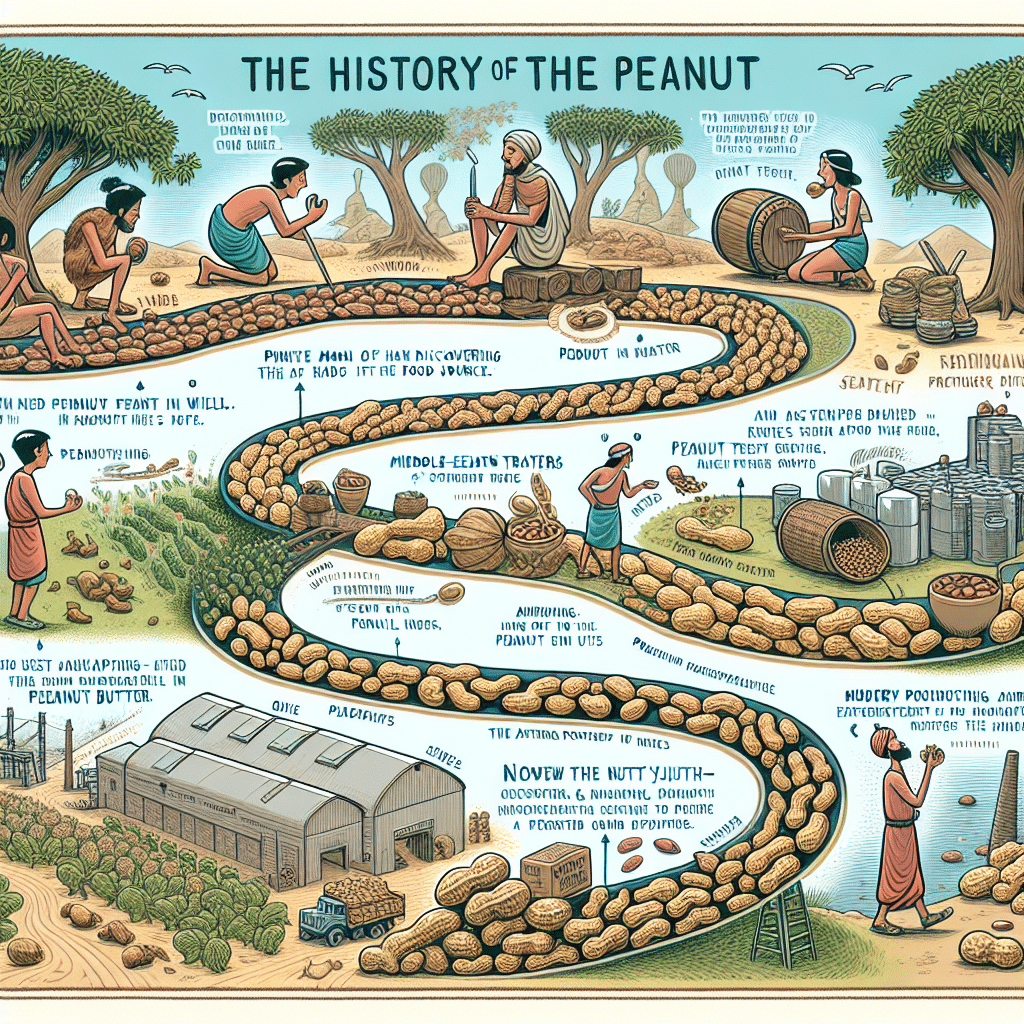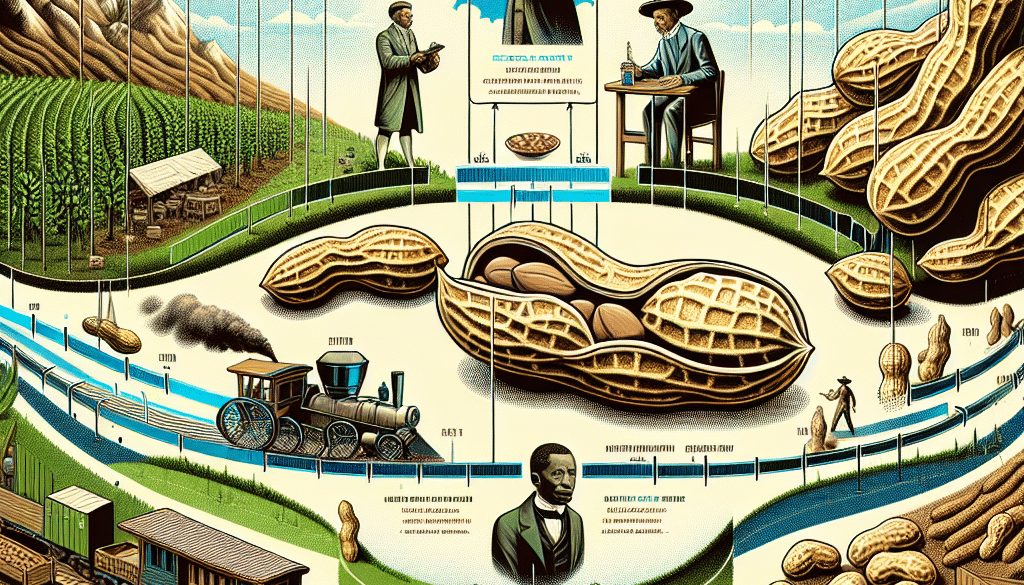History of The Peanut: A Nutty Journey Through Time
-
Table of Contents
The Peanut’s Past: A Nutty Journey Through Time

The humble peanut, often nestled in lunchboxes and snack bowls, has a rich and storied past that spans continents and cultures. This seemingly simple legume has played a significant role in agriculture, economy, and even politics. Let’s embark on a nutty journey through time to uncover the fascinating history of the peanut.
Origins and Early Cultivation
The peanut, or Arachis hypogaea, is believed to have originated in South America, with archaeological evidence suggesting that ancient cultures in modern-day Bolivia and Peru cultivated peanuts as far back as 7,600 years ago. These early peanut farmers recognized the plant’s value as a sustainable and nutritious food source.
- Pre-Columbian societies, such as the Incas, were known to bury peanuts with their dead, providing sustenance for the afterlife.
- Spanish and Portuguese explorers encountered peanuts in the New World and introduced them to Africa and Asia.
- In Africa, peanuts quickly became integrated into traditional farming systems and cuisine.
Spread to the Old World
As European explorers and traders spread the peanut across the globe, it found a new home in various cultures. By the 1700s, peanuts had become a staple crop in Africa and parts of Asia, where they were used for oil, food, and as a soil-enriching crop due to their nitrogen-fixing properties.
- In Africa, peanuts were known as “groundnuts” and became a key ingredient in many dishes.
- Asian countries, particularly China and India, began cultivating peanuts on a large scale for oil production.
The Peanut in North America
Despite its presence in North America since the time of Spanish exploration, the peanut didn’t gain popularity in the United States until the 19th century. Initially seen as food for the poor and for livestock, the peanut’s status began to change thanks to the efforts of individuals like George Washington Carver.
- During the Civil War, peanuts became a valuable food source for soldiers.
- George Washington Carver’s research at Tuskegee Institute in the early 20th century led to the development of over 300 uses for peanuts, transforming its agricultural significance.
- The introduction of peanut butter in the late 19th century eventually solidified peanuts as a staple in the American diet.
Industrialization and Peanut Butter
The industrial revolution brought about significant changes in peanut production and consumption. The invention of machinery for planting, harvesting, and shelling peanuts made them more accessible. The real game-changer, however, was the creation of peanut butter.
- John Harvey Kellogg, known for his cereal empire, patented a process for creating peanut butter from raw peanuts in 1895.
- The 1904 World’s Fair in St. Louis popularized peanut butter as a nutritious and convenient food.
- Brands like Peter Pan and Skippy began mass-producing peanut butter, making it a household favorite.
Modern Cultivation and Uses
Today, peanuts are grown in tropical and subtropical regions around the world, with China, India, and the United States being the top producers. Modern cultivation practices have made peanuts one of the most efficient and sustainable crops.
- Advancements in breeding have led to more disease-resistant and high-yielding peanut varieties.
- Peanuts are used in a variety of products, from cooking oils and snacks to livestock feed and industrial materials.
- The health benefits of peanuts, such as their high protein content and heart-healthy fats, have been widely recognized.
Conclusion
The history of the peanut is a testament to human ingenuity and adaptability. From its ancient origins to its global spread and industrialization, the peanut has proven to be more than just a snack. It’s a crop that has shaped economies, supported livelihoods, and contributed to cultural cuisines around the world. As we continue to innovate and cultivate this versatile legume, the peanut’s journey through time is far from over.
Discover ETprotein’s Nutritious Protein Products
For those interested in the nutritional benefits of peanuts and other plant-based proteins, ETprotein offers a range of high-quality protein products. Their organic peanut protein is just one example of their commitment to providing sustainable and health-conscious options for consumers and industries alike.
About ETprotein:
ETprotein, a reputable protein Chinese factory manufacturer and supplier, is renowned for producing, stocking, exporting, and delivering the highest quality organic bulk vegan protein and plant proteins. They include Organic rice protein, clear rice protein, pea protein, clear pea protein, pumpkin seed protein, sunflower seed protein, mung bean protein, peanut protein etc. Their offerings, characterized by a neutral taste, non-GMO, allergen-free attributes, cater to a diverse range of industries. They serve nutraceutical, pharmaceutical, cosmeceutical, veterinary, as well as food and beverage finished product distributors, traders, and manufacturers across Europe, USA, Canada, Australia, Thailand, Japan, Korea, Brazil, and Chile, among others.
ETprotein specialization includes exporting and delivering tailor-made protein powder and finished nutritional supplements. Their extensive product range covers sectors like Food and Beverage, Sports Nutrition, Weight Management, Dietary Supplements, Health and Wellness Products, and Infant Formula, ensuring comprehensive solutions to meet all your protein needs.
As a trusted company by leading global food and beverage brands and Fortune 500 companies, ETprotein reinforces China’s reputation in the global arena. For more information or to sample their products, please contact them and email sales(at)ETprotein.com today.














